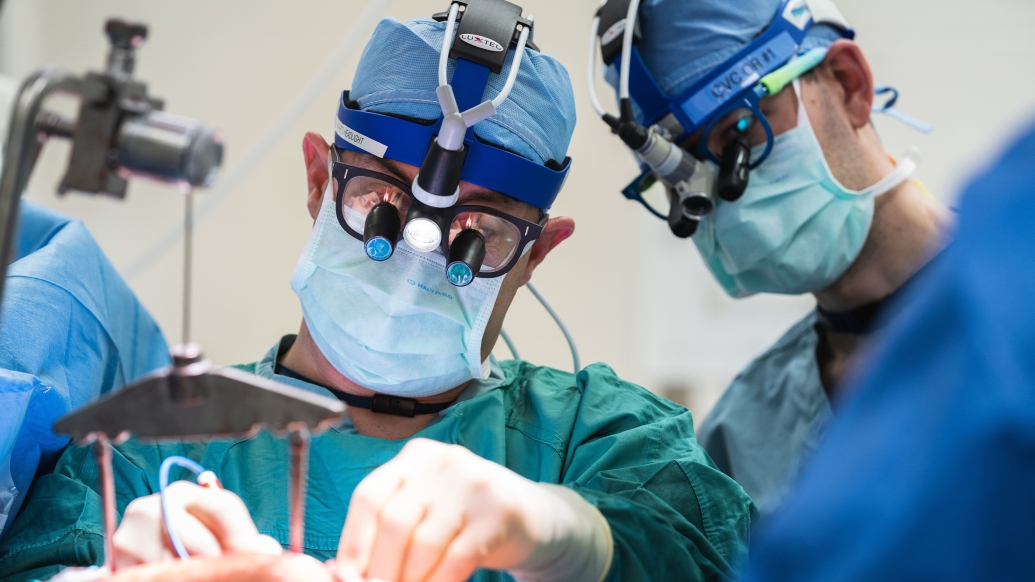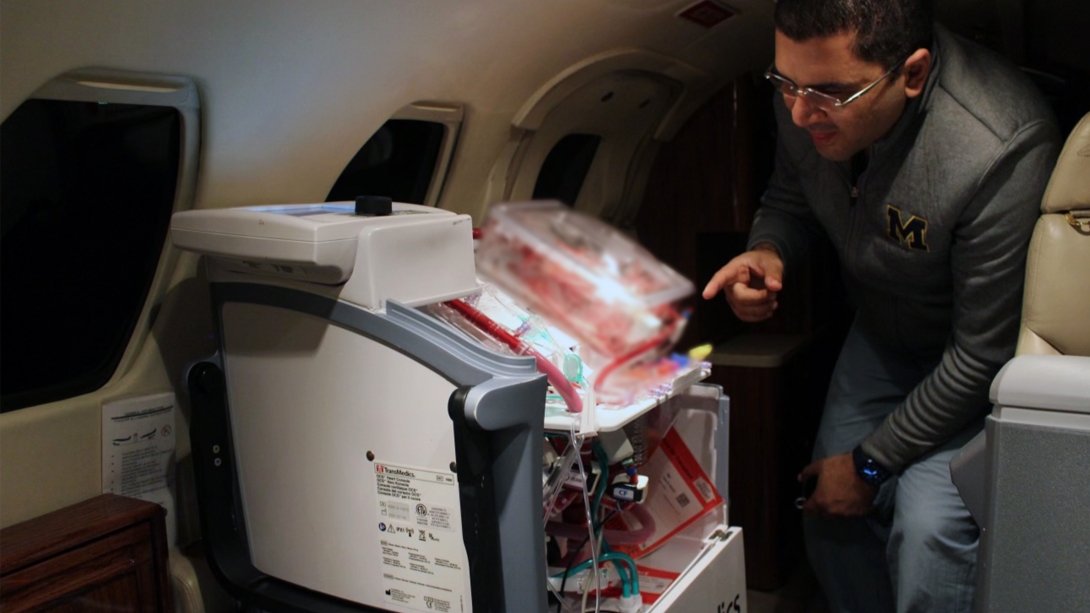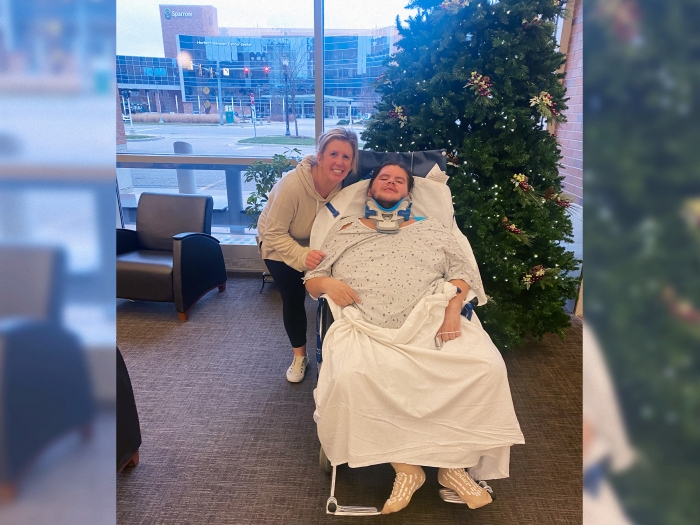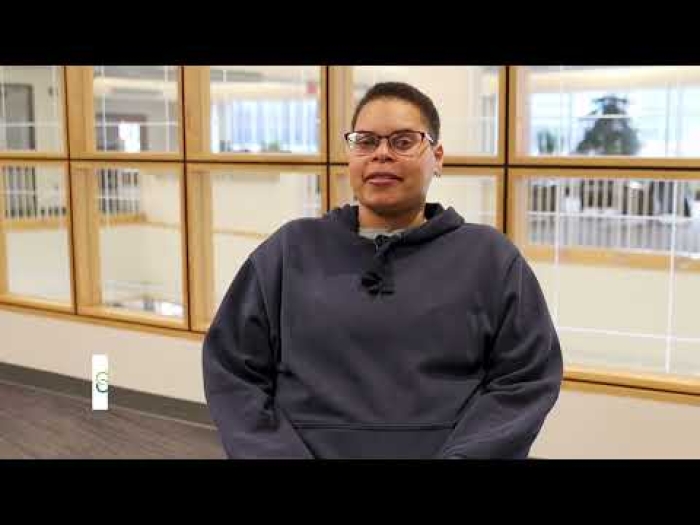The patient received a new heart after years of severe symptoms due to a congenital heart condition
8:00 AM
Author |

As the number of heart transplants performed across the United States continues to grow, surgeons at the University of Michigan Health Frankel Cardiovascular Center are taking advantage of technology that could increase its transplant yield by as much as 30%.
In March, transplant surgeons in Ann Arbor completed the health system’s first heart transplant using an organ from a donor who had recently died — a process called donation after circulatory death, or DCD. The patient, a man in his 30s, received the heart after years of deteriorating due to congenital heart failure.
For decades, surgical teams could only transplant hearts from patients who were irreversibly brain dead yet still had a beating heart.
“There has always been a huge imbalance in the number of people experiencing heart failure who need a transplant and the hearts we have to offer,” said Jonathan Haft, M.D., surgical director of the heart transplant program at U-M Health. “This advancement to use DCD hearts can substantially increase the organ donor pool by utilizing organs from donors that would previously not be considered.”
The rise of DCD transplant
Donation after circulatory death occurs after a patient has reached a point of illness when death is impending, yet the brain still has some function and, therefore, does not meet the legal definition of brain death.
This could be, for example, someone who suffers a critical gunshot wound, motor vehicle accident or a prolonged cardiac arrest. When the patient dies, a transplant team must wait five minutes to remove the heart (the “no-touch” period) in a process known as super rapid recovery.
Transplant teams have utilized DCD abdominal organs, such as kidneys, pancreases, intestines and livers, for decades. Hearts, however, were subject to more damage when put in cold storage and transported to the patient in need.
But with recent technological advances of machine perfusion like the TransMedics Organ Care System, organs can be reperfused — preserved by restoring blood flow in near-physiologic conditions — outside of the body to reduce the risk of injury during transit and increase the time organs can travel. They can also assess the donor heart for injury sustained during the process of the donor’s death.

A large clinical trial of the TransMedics OCS found in 2022 that using the machine to assist in transplanting DCD hearts resulted in a high transplant success rate compared to traditional donation-after-brain-death hearts preserved in cold storage. The U.S. Food and Drug Administration approved the device for use of DCD hearts that same year.
“These are hearts from deceased donors that just died right in front of us,” said Ashraf Abou el ela, M.D., a cardiac transplant surgeon at the U-M Health Frankel Cardiovascular Center. “Before this technology existed, around 10% of DCD hearts put in cold storage would not work, which is significant. Now, we can deliver oxygenated blood to these hearts and test to make sure they are working outside of the body before hearts are implanted in patients, closing that 10% gap.”
For the patient, who received a heart in March, transplant was the final remaining option. Medications proved ineffective, and the patient was not a candidate for an implantable device to support circulation.
Increased access to transplant using DCD
Prior to this case, the transplant team at U-M Health would check “NO” in the DCD box on request forms for patient transplants. After using TransMedics for DBD hearts for over two years, they were ready to pursue a DCD donor for transplantation.
This advancement to use DCD hearts can substantially increase the organ donor pool by utilizing organs from donors that would previously not be considered.”
- Jonathan Haft, M.D.
“We received an enormous number of offers for DCD hearts for this transplant,” Haft said. “Before this case, we were not yet prepared for DCD organ donation, as it requires a complex infrastructure and investment. But since we started, we have listed a number of patients for DCD and sent our team to retrieve many organs. It has opened a significant window of possibility for much broader access.”
In 2022, a record 4,169 hearts were transplanted in the United States, according to the United Network for Organ Sharing. That number increased for the 11th consecutive year, with a 68% increase in DCD transplants.
This increase in potential donatable hearts not only excites transplant teams, Haft says, but it creates opportunities for thousands of families of critically ill people who want their organs donated.
SEE ALSO: Her heart stopped more than 25 times. ECMO saved her life
“There are many DCD organ donor families who have been disappointed that they could not donate the heart of their loved one,” he said. “Their loved one, who may have suffered a devastating injury, courageously agreed to support organ donation, but they were not able to move forward in the past. This creates a pathway for them to give in the way that they initially wished, a way that could save even more lives.”
While U-M Health has taken the step toward DCD heart donation, Abou el ela says, the majority of transplant centers in the United States do not yet have the infrastructure in place to do so.
“There is a high entry fee and huge costs associated with investing in ex-vivo perfusion technology, as well as training providers and staff,” he said. “We have hope that more centers across the country will be able to take these steps in the coming years, increasing access to the gold-standard treatment of heart failure for vulnerable patients.”

Explore a variety of healthcare news & stories by visiting the Health Lab home page for more articles.

Department of Communication at Michigan Medicine
Want top health & research news weekly? Sign up for Health Lab’s newsletters today!





